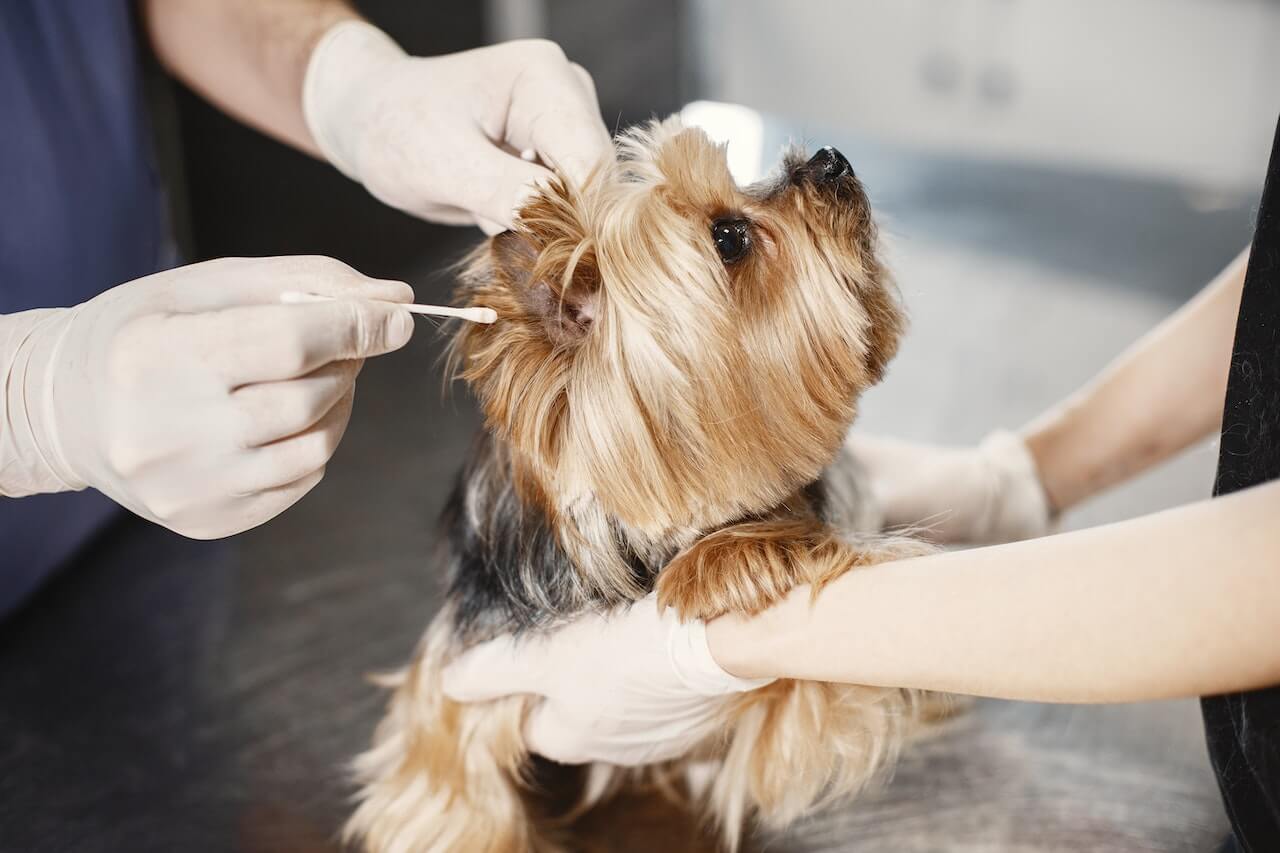
As a new or long-term pet owner, learning about illnesses that affect our pets is crucial. There are some telltale signs if you’ve ever noticed a sickness or skin issue with your dogs. Whining, whimpering, change in behavior, fluids, or discharge all indicate a bigger problem. According to the American Kennel Association, 1 in 5 dogs in the U.S. obtain ear infections. The dog breeds most prone to ear infections include Shar-peis, Basset Hounds, and Labradoodles.
Today, HICC PET™ offers a guide to cleaning dog ears that vary from natural remedies, dog ear cleaners and preventative treatment. Whether you use modern medicine or take the natural route, we have all the answers to help your pup in need.
Common Ear Infections in Dogs and How to Treat Them
There are 3 types of dog ear infections to watch out for:
- Otitis Externa: infection and inflammation to the outside of the ear
- Otitis Media inflammation affecting the middle ear canal
- Otitis Interna: an inflammatory disease in the inner ear.
Outside ear infections are the most common for pets but can turn into inner ear infections that cause extreme pain, hearing damage, and even deafness in one or both ears. Treatment depends on the cause and type of ear infection but varies from:
- Cleaning a dog’s ears at home
- Administering vet-approved antibiotics or medications
- Addressing any underlying allergies
- Removing debris from the ear
- Using a clinically approved dog ear cleaning solution
Signs That Your Dog Needs Their Ears Cleaned or Treated
Canine ear infections do not show symptoms right away. Incorporate ear cleaning in your dog’s care routine or seek medical options if you notice any of these signs or symptoms:
- Frequent scratching at the ears.
- Shedding of ear wax.
- Unpleasant odors in or around the ears.
- Brown or yellowish discharge coming out of the ear.
- Visible ear redness or swelling.
- Head shaking.
- Dropping or sagging ears.
- Noticeable inflammation or puffiness in the ear canal.
- Whining or whimpering when touching the ears.
- Ear crusts or scarring.
Do I Need to Use a Dog Ear Cleaner?
We highly recommend using a veterinarian-approved dog ear cleaner for the best pet ear care. Certain cleaners have harsh ingredients like alcohol or hydrogen peroxide that cause burning, irritation, and discomfort to your dog’s ear. Dog ear cleaners with antifungal and antibacterial properties effectively disinfect debris and clear out the canal. To find the best ear cleaner for your pet, research companies with a long-standing reputation for pet care or speak to your veterinarian.
Are You Supposed to Clean Your Dog’s Ears Out?
The short answer is absolutely! Most dogs have an L-shaped ear design, making it easy for bacteria and dirt to collect. You do not have to clean a dog’s ears every day, but be aware of removing any excess water, wax, or debris if they enjoy swimming, rolling around in the grass or dirt, or playing outdoors. The best solution is getting your dog on a skincare/ear cleaning routine that works for both of you.





